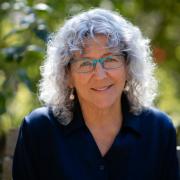Anti-Bias Education and Holidays: Making Thoughtful Decisions

Acknowledging or celebrating holidays in early childhood programs can bring pleasure to many families, staff, and children and can be useful in building connections between school and families. However, holidays also pose a range of challenges to ensuring that all children, families, and staff feel respected and to children learning about diversity of families. Whether or not to include any holidays in your curriculum, and what activities to use if you do, requires thoughtful decision making.
In this blog, by the authors of the current as well as the upcoming second edition of Anti-Bias Education for Young Children and Ourselves, Louise Derman-Sparks and Julie Olsen Edward lay out some principles about how programs and teachers can think about holidays in their classrooms. Catherine Goins, who worked with Louise and Julie on the second edition, and Julie Bisson’s book Celebrate! An Anti-Bias Guide to Including Holidays in Early Childhood Programs, have contributed to the authors’ thinking.--Editors
Specific holidays and religious observances are not universal
All cultures commemorate beliefs, historical events, and people significant to the culture through special celebrations and holidays from daily work. These differ from each other. In almost all early childhood settings, the beliefs and traditions of some families may differ from those of others. Even within groups that honor the same holiday, how individual families celebrate will reflect both similarities and differences. Yet, conflicting celebrations may also have common ground. Knowing the purpose and worldview underlying a holiday will help you make decisions about what role, if any, you want that holiday to play in your program.
Secularized or commercialized versions of holidays are not culturally or religiously neutral
Both the NAEYC Code of Ethics and the anti-bias education approach make respecting family diversity a cornerstone of quality early childhood programs. Honoring the cultural diversity among the families you serve means recognizing that all have the right to their traditions and that the ECE program does not favor one category of families over another.
Arguing that it is okay for a program to celebrate a dominant culture religious holiday, on the rationale that the props and activities connected to the holiday are “not specifically religious, but just fun” and therefore okay for everyone (e.g., Christmas trees, Santa Claus, cards, and gift giving, or Easter bunnies and egg hunts), does not respect cultural and religious diversity. Instead, it lifts up one group’s holidays above others. Regardless of how commercially advertised or widespread these secular approaches may be, they are grounded in specific religious and cultural assumptions. Even some Christian families see these as pagan appropriations that trivialize one of their two most important holy days of the year. For the many families of other faiths, the activities are inseparable from the underlying meaning of the religious rituals themselves (after all, a Christmas tree is still a Christmas tree, and the Easter bunny is the Easter bunny). Other kinds of designated holidays often included in early childhood program activities may be based on beliefs or practices that negate some families. For example, Mother’s Day and Father’s Day, in the traditional narrative, recognize only one type of family. Yet, most early childhood education programs now serve a wide range of families, many of which have configurations that differ from the one mother and one father family structure. And all dominant culture holidays reflect a particular perspective about historic events and particular groups of people who are admired and those who are erased.
So what is a teacher to do? Are there ways to acknowledge holidays, to have celebrations, to honor families that are respectful in a highly diverse world? The answer is yes. Here are some key ideas.
Emphasize children learning about each other’s family holidays, rather than celebrating them
Celebrating a holiday engages children in holiday activities as full-fledged participants, on the assumption that their families believe in the holiday’s purpose and meaning. Learning about a holiday means teaching children about what the holiday means to different people and about the many different ways those families who honor the holiday celebrate it. Teaching about a holiday requires that teachers make very clear that the class can enjoy learning about each other’s holidays while holding to their own family’s beliefs and traditions. Celebrating a particular holiday is appropriate in faith-based programs or in programs in which the holiday is truly lived by every family in the program. Even then, it’s important to clarify that within any belief system, different families celebrate in different ways.
Respect all families' holiday traditions and their specific ways of celebrating—or not celebrating
It is hurtful to children and families to impose celebrating of the holidays of one group on all the children and staff, or to make the holiday traditions of some groups visible while others are invisible. Respecting the cultural diversity among the families you serve means recognizing that all have the right to their traditions. This does not mean that you must teach about every holiday your families practice. It does mean that you make choices that do not disrespect or leave out any family.
Pay attention to the language you use in holiday activities
This is an important element in children learning about, rather than celebrating, a holiday grounded in a specific faith or celebrating a historic event. This is especially necessary in publicly funded programs where religious teaching is not allowed by law. Your language choices also support or undercut the concept of religious diversity and each family’s freedom of choice. The challenge is to choose words that focus on the history of the special day and that also make clear the diversity of beliefs. These are topics that require clarifying conversations.
Consider creating unique class or school celebrations
In addition to, or instead of, celebrating the holidays observed by children’s families, some teachers create their own celebrations for various parts of the school year. This approach makes it possible for every child to participate in shared special days with the rest of the class. They also can build school–family connections and community within a program. Celebrations can be respectful—for example, “Honoring Our Families” get-togethers; “Thanking the People Who Make Our School Work” (cook, janitor, bus driver, etc.) days; or occasions for “Recognizing Family and Neighborhood Heroes.”
Celebrations can also be whimsical and playful—for example, “Bring Books Alive Day” (making and wearing costumes from books, eating foods from favorite books, acting out favorite stories); “Pajama Day” (wearing pjs and slippers to school, telling bedtime stories, sharing family bedtime rituals); or “Backwards Day” (wearing clothes backwards, doing things in reverse order of an ordinary day). They can also be used to mark the passing of the year with an annual end-of-year picnic or potluck dinner. Some schools also have graduation ceremonies or “You’re Off to Kindergarten” parties for children transitioning out of the programs.
Help children understand when a staff member or child cannot participate
Teaching respect for diversity includes helping children understand that families have different ways of acting, and these may not be the same as the behaviors in their own family. This is certainly true regarding holiday practices. Consider the following holiday examples:
A mother brings a special lunch to school for her child’s birthday. She does not realize it is Ramadan, when observant adult Muslims fast between dawn and dusk. She is upset when Edward, a student teacher, doesn’t eat anything. She complains to the head teacher that both her and her daughter’s feelings were hurt. The head teacher explains Edward’s right to practice fasting. She also tells Edward that the child was puzzled by his not eating the special lunch. Edward makes sure to talk with the child that the next day. He explains why he hadn’t eaten and assures the child that he is happy for her birthday.
Here is an incident where a student teacher allows her personal feelings to undercut a basic practice of the Jewish holiday of Passover.
The kindergarten has spent a few days learning about Passover. During a discussion of the Seder ceremony, the teacher explains the meaning and tradition behind matzo. Esther, one of the Jewish children, states that she cannot eat leavened bread during the whole week of Passover. The next day a birthday celebration for another child includes cupcakes from the birthday child’s family.
A student teacher, enjoying her cupcake, gives Esther a piece because she feels sorry about “depriving” Esther. Luckily, the teacher notices the conflicted expression on Esther’s face and intervenes: “Esther, do you know that cake is made with leavened flour and that you can’t eat it during Passover?” Esther nods her head. “Let’s freeze your piece and you can eat it after the holiday.” Esther relaxes, gives her cake to the teacher, and goes off to play. Unfortunately, the teacher had not thought to check ahead of time with Esther’s family when the birthday celebration was scheduled during the Passover holiday. If she had, she might have planned with them—for example, asking if the the birthday child’s family might check with Esther’s family about bringing a non-leaven cookie or pastry for Esther.
Understanding the different ways people do and don’t celebrate; learning accurate, respectful vocabulary about holidays; broadening children’s worldview of what a holiday is—these are all wonderful, powerful learning outcomes for children about holidays. Activities that foster these objectives prepare children to live in a diverse society with respect while cherishing their own beliefs. Taking the time to thoughtfully discuss how to make respectful learning about holidays a part of your curriculum is worth the results when all children and families feel that they are cared about and belong in your program.
This blog is a part of Equity in Action, a blog series exploring the many ways early childhood educators and administrators, higher education faculty members, policymakers, advocates, and other ECE allies can bring the new Advancing Equity in Early Childhood Education position statement to life in practice and policy.
Louise Derman-Sparks, MA, has worked with children and adults in early childhood education for more than 50 years and is a faculty emerita of Pacific Oaks College. She is coauthor of several books, including Leading Anti-Bias Early Childhood Programs: A Guide for Change, Anti-Bias Education for Young Children and Ourselves, and Teaching/Learning Anti-Racism: A Developmental Approach.

Julie Olsen Edwards, coauthor of Anti-Bias Education for Young Children and Ourselves, was on the faculty of Cabrillo College’s early childhood education department for 45 years. A lifetime activist for children and families, she continues to write, teach, and consult on issues of equity, diversity, and anti-bias.
